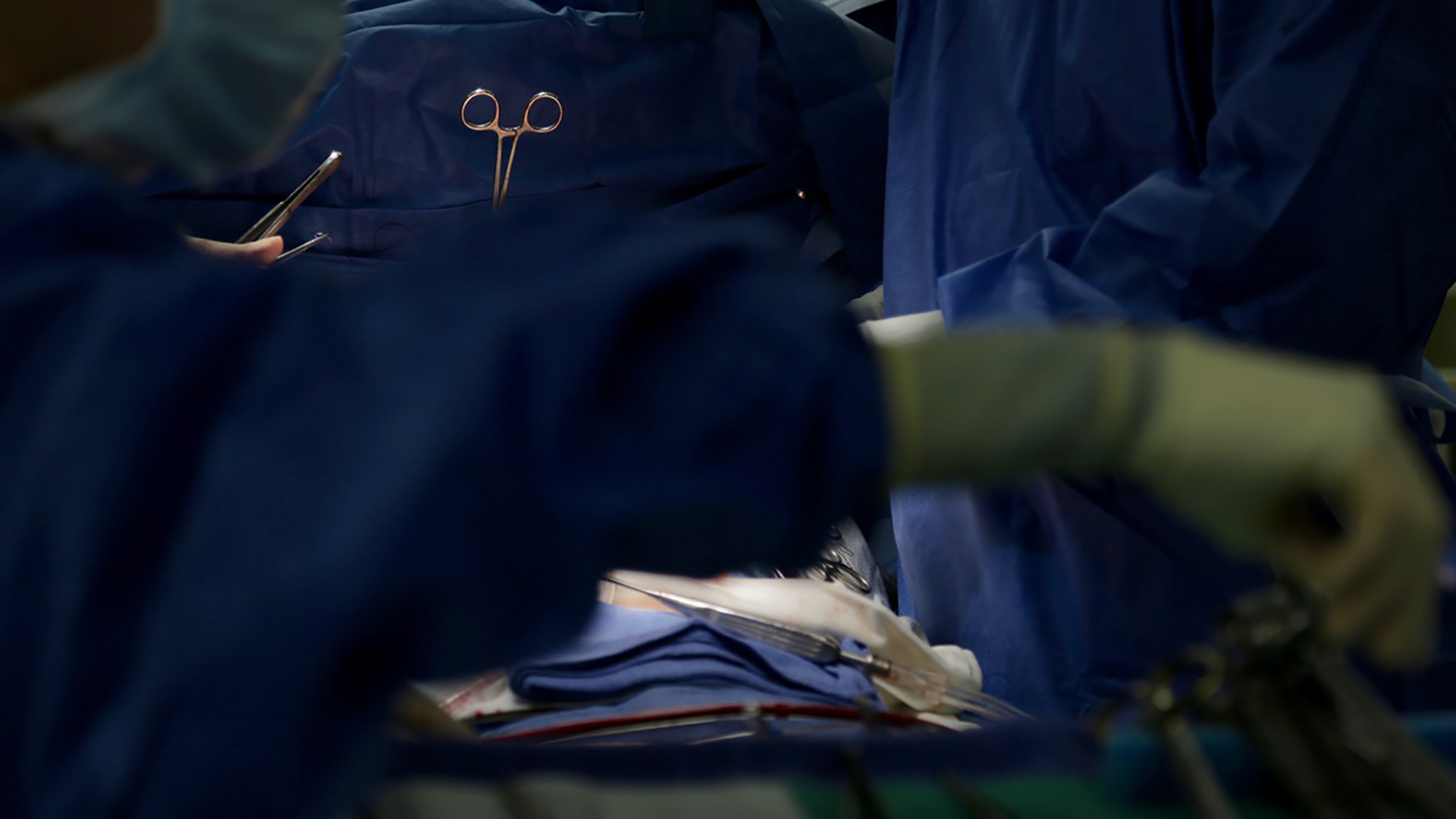By: Lindsay Gandolfo
Retirement takes on different meanings for different folks, but for James Church, MD, retirement became about reflection and mentorship. For him, there is still work to do. “Wisdom is knowledge plus experience, and that’s my role now,” says Dr. Church. “Departments need somebody with gray hair.”
After 32 years in practice as a colorectal surgeon, building a world-class colorectal clinic and mentoring countless surgeons in Ohio, Dr. Church hung up his white coat at the Cleveland Clinic. Within months he received a call from a past mentee and current Chief of Colorectal Surgery at Columbia, Ravi Kiran, MD, about bringing his wisdom to Washington Heights. If you’ve ever met Dr. Kiran, you know he’s a convincing sort. Retired or not, Dr. Church quickly agreed.
“There’s no one quite like Dr. Church. He’s a master endoscopist, outstanding colonoscopist. He does sedationless colonoscopy and can do it so well that people remain completely awake and don’t even feel pain. They don’t feel a thing,” says Dr. Kiran. “And it’s not only technique, he takes out huge polyps, things nobody can usually take out in endoscopy.
That’s not all Dr. Church is known for either. He’s an expert in pelvic floor management, anorectal surgery, like repairing anal fistulas, and his experience in clinical research and hereditary cancers is bar none.
“Anal fistulas are very difficult to heal,” says Dr. Kiran. “At best, the books say 80 percent success. He’s got like 95 to 97 percent success.”
When Dr. Church talks about wisdom, he’s referring to what informs success, this collection of experience and thoughtfulness. How his relationships with patients, generations of families who have sought his care, inform his thinking.
Dr. Kiran embodies this approach too, making it his mission to instill the ethos into his own practice and mentorship. Now with a world-class department at Columbia brimming with young and talented surgeons, it’s time to raise up a new generation to carry the torch and run with it.
Theories abound as to what makes a good surgeon—bedside manner, technique, scholarship, collaboration. Dr. Church does not disagree, but his definition is much simpler and all-encompassing. “What makes a good surgeon is to wonder,” says Dr. Church. “Wondering leads you to formulate academic questions, which leads you to formulate studies to find out the answer. Surgeons often aren’t that curious, but I think a complete surgeon is a wonderer.”
Wonder can lead you to do things a little differently, too. “Most surgical textbooks are full of evidence-based medicine, it’s the buzzword of the day,” says Dr. Church. “But I’ve developed ways of looking at disease, of doing things that patients like, which are generally not practiced and I think that’s a problem.”
Evidence-based medicine informs an academic mindset, and Dr. Church has written extensive scholarship on treatment and disease. Still, sometimes perhaps the academic study-slog is a bit of a trap.
“There are problems with evidence-based medicine because the quality of evidence buries a lot. If you base your practice on poor evidence, then you’re going to have poor outcomes,” says Dr. Church. “Every surgeon is different. As humans, we’re all different. We have different ways of holding the scalpel; we have different ways of breathing while operating. So, what’s good for one surgeon may not be good for another.”
Wisdom, it seems, is a keen understanding of guiding principles, and Dr. Church wants to reinforce these principles to inform technique, to give young surgeons the shortcut to what he figured out the long way.
“I don’t want to let 32 years of experience disappear, so I’m here as an advisor, a mentor. I’m also writing a textbook, and I’m doing James-based medicine,” explains Dr. Church. “All the things I find helpful, in the operating room, with patients, and in balancing family life. All of that matters.”
With colorectal surgery, some operations are more about quality of life than the disease itself. It’s often not just resecting a cancer and moving on. A treatment that may be great for one person may not fit with the lifestyle of the next. “With the things we do, it’s always important to listen,” says Dr. Kiran. “The question to a patient always is, ‘What’s best for you?’”
It’s a guiding principle that Dr. Kiran and Dr. Church aim to make a tentpole. “When I walk through the hospital, and I see patients, I can see their anxiety. I can see their fear. I can see their unease, and I see it as part of my job to put them at ease—to give them some hope. To give them some reassurance that I know what I’m doing,” says Dr. Church. “We can fix it, or perhaps we can’t fix it, but there is something we can do. And it’s something we can do together.”

